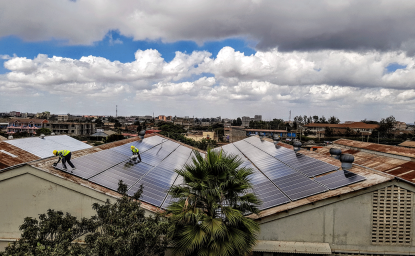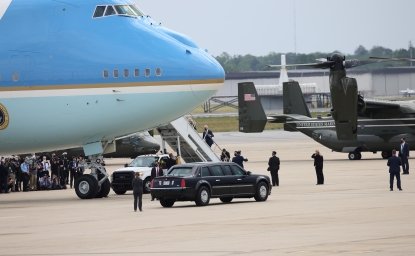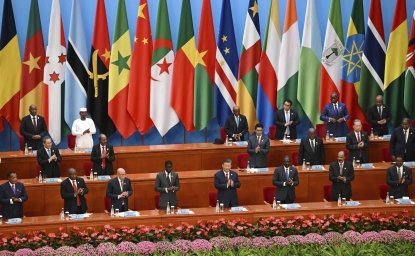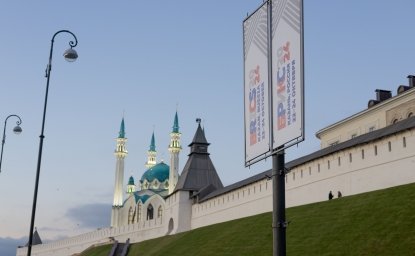
A blog of the Africa Program
The COVID-19 pandemic is hitting African countries recently emerging from violent conflicts, already struggling with violent conflicts, or transitioning from conflict to peace. The initial impact of COVID-19 in these countries is on health and the economy. As a result, response measures have significant socio-economic impact that may hinder these countries' attainment of the UN Strategic Development Goals on poverty, food security, inequality, and peace.
The adverse socio-economic impact of the pandemic could be particularly severe in Africa, possibly pushing up to 27 million more people on the continent into extreme poverty. With the pandemic threatening the food security of millions in Africa, it also threatens security, and could erode any gains made from peacebuilding efforts. How the pandemic affects peace processes will differ from country to country. It will mainly depend on the underlying causes of conflict and the COVID-19 economic and health responses in each individual country. Thus, for each conflict-stricken African country, the pandemic response is likely to interact with peacebuilding. This interaction deserves particular attention.
Consultations held in April 2020 by Peace Direct and Conducive Space for Peace with over 400 peacebuilders from more than 60 countries revealed that the COVID-19 pandemic and its associated responses are exacerbating the underlying roots of conflict, particularly inequality, and are increasing community tensions. Physical distancing, blaming "others" for the spread of the virus, and restrictions on movement and congregation are breeding tensions among religious, business, and social groups. This raises two key questions: to what extent can COVID-19 responses fuel conflicts; and, conversely, does COVID-19 present opportunities for sustaining gains made from peacebuilding?
Social and political tensions could escalate if hardships facing poor, vulnerable, and marginalized groups are exacerbated by COVID-19 responses. This is especially true where such groups lack access to health services, social protection, and online education, and experience pandemic-driven job losses. COVID-19 mobility restrictions may also prevent marginalized groups, who typically make their livelihoods in the informal economy, from securing income for their basic needs. Literature suggests that vulnerable citizens are more likely to join riots and fall prey to organized armed groups when their basic needs are not met. These groups can capitalize on the pandemic, as seen in the recent attacks by Boko Haram in Chad, Al-Shabaab in Somali, and the Islamic State in Mozambique. COVID-19 can also spark conflict by disrupting electoral processes. In conflict settings these disruptions can increase tension, derail conflict resolutions, and undermine peacebuilding efforts.
Thus, for most fragile countries, governments' consideration of how COVID-19 responses interact with conflict dynamics will be paramount in maintaining peace, in addition to curbing the spread of the virus. This is important because violent conflicts often weaken health systems and worsen the spread of infectious diseases, as seen in the recent resurgence of polio in Syria, cholera in Yemen, and Ebola in the Democratic Republic of Congo (DRC). With COVID-19 overwhelming public health systems worldwide, its impact on the already weak health infrastructure of fragile countries will likely exacerbate the spread of the virus, leaving their communities more vulnerable to the disease.
While the COVID-19 pandemic has great potential to fuel conflict, it nonetheless can present opportunities for peacebuilding in fragile countries. For instance, restrictions on movement and economic activities could constrain armed groups and weapons acquisition. Moreover, the economic impact of a national health emergency could not only starve armed groups of funding, but also drain them of personnel as combatants seek to avoid infection and support their families. In a COVID-19 environment it is important that ongoing peace processes do not collapse, but rather continue, even if remotely/virtually. The UN and other stakeholders are exploring ways to use digital technology to secure peace processes, facilitate dialogue, and consolidate pre-pandemic progress.
As COVID-19 restricts the movement of peacebuilders, it behooves governments, community leaders, and local authorities to do everything possible to sustain peacebuilding gains while also containing the virus. All actors need to do more to not only tackle the root causes of conflicts but also address new conflict dynamics associated with COVID-19.
Because of social-distancing protocols, central and local governments need to intensify the use of local media networks to share information about these new pandemic-related conflict dynamics and how to mitigate them. Governments can also strengthen collaboration with local authorities to ensure COVID-19 responses are targeted to the needs of particular communities rather than applied arbitrarily.
Local organizations can play vital roles such as gathering and disseminating information on how COVID-19 impacts conflict dynamics, and advocating appropriate behavioral changes. International peacebuilders can continue providing support to local actors by funding peacebuilding activities.
Although African governments are engrossed in handling the pandemic, they must not lose focus on the security challenges aroused by COVID-19. Governments should not only pursue programs that address the structural causes of conflict, including inequalities being exacerbated by the pandemic, but also plan for a post-pandemic recovery process aimed at rebuilding local economies, social structures, and health systems.
Maame Esi Eshun is a Regulatory Research Analyst at the Public Utilities Regulatory Commission in Ghana. She was previously a Southern Voices Network for Peacebuilding (SVNP) Scholar during the spring 2016 term (May to July 2016). Eric Oteng-Abayie is an Economist and Senior Lecturer in the Department of Economics at the Kwame Nkrumah University of Science and Technology in Ghana.
Photo source: COVID-19 mitigation in the Horn of Africa. U.S. Navy Hospital Corpsman during a routine screening at Camp Lemonnier in Djibouti. Credit: NavyMedicine. Source: https://www.flickr.com/photos/61270229@N05/49898558756. License: https://creativecommons.org/publicdomain/mark/1.0/.
Authors

Regulatory Research Analyst at the Public Utilities Regulatory Commission, Ghana

Africa Program
The Africa Program works to address the most critical issues facing Africa and US-Africa relations, build mutually beneficial US-Africa relations, and enhance knowledge and understanding about Africa in the United States. The Program achieves its mission through in-depth research and analyses, public discussion, working groups, and briefings that bring together policymakers, practitioners, and subject matter experts to analyze and offer practical options for tackling key challenges in Africa and in US-Africa relations. Read more





